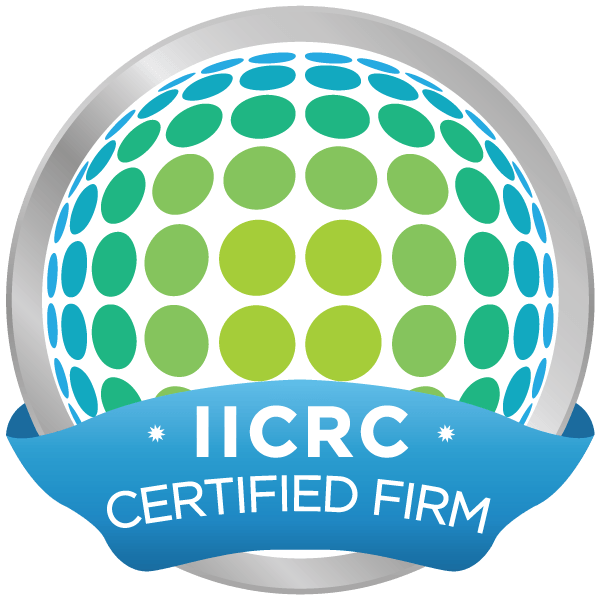Welcome to our expert’s guide on how to prevent water damage in your home. Water damage can be a homeowner’s worst nightmare, causing costly repairs and potentially hazardous living conditions. By implementing some basic preventative measures and maintaining your home efficiently, you can safeguard your property against potential water-related issues.
In this section, we will provide you with expert tips on how to prevent water damage in your home. By implementing these strategies, you can safeguard your property, identify potential problems, and maintain your home efficiently.
Key Takeaways:
- Regular home maintenance can help prevent water damage.
- Identifying common causes of water damage can help you take preventative measures.
- Maintaining your roof, gutters, and plumbing system is crucial in preventing water damage.
- Waterproofing your basement and foundation can protect your home against potential water intrusions.
- Maintaining appliances and equipment can prevent water-related issues.
Understanding the Common Causes of Water Damage
Water damage to your home can be a nightmare to deal with. It can cause severe structural damage, not to mention the potential health hazards it poses. Knowing the common causes of water damage can help you take preventative measures and avoid costly repairs.
Common causes of water damage
Here are the most common causes of water damage to homes:
- Leaking or burst pipes
- Clogged drains and gutters
- Roof damage and leaks
- Foundation cracks and leaks
- Storm and flood damage
- Appliance and equipment malfunctions
Effects of water damage
Water damage has both immediate and long-term effects on your home. Immediate effects include:
- Damage to walls, floors, and furniture
- Electrical hazards
- Mold growth
- Foul odors
If left unchecked, water damage can cause more severe and long-term effects such as:
- Structural damage
- Decreased property value
- Increased risk of fire
- Health hazards from mold and mildew
It’s important to take immediate action if you experience any water-related issues in your home.
Roof and Gutter Maintenance
Your roof and gutters are an essential part of your home’s water management system. Proper maintenance of these areas can prevent water damage and prolong the life of your roof and gutters. Here are some tips for maintaining your roof and gutters:
Roof Maintenance
Inspect your roof regularly for any signs of damage or wear, such as missing or cracked shingles, holes, or leaks. If you notice any issues, address them immediately to prevent further damage.
Clear debris, such as leaves and branches, from your roof regularly. This debris can trap moisture on your roof and cause damage over time.
Trim any overhanging tree branches near your roof. These branches can rub against your roof, causing damage to shingles and other parts of your roof.
If you live in an area with heavy snow or ice, make sure to remove it from your roof to prevent ice dams and other issues.
Gutter Maintenance
Clean your gutters regularly to prevent clogs and blockages that can cause water to overflow and damage your home’s foundation.
Inspect your gutters for any signs of damage, such as cracks or holes, and repair them promptly.
Ensure that your gutters are properly attached to your home and are not sagging or pulling away from the roofline.
Consider installing gutter guards to prevent debris from getting into your gutters.
By following these maintenance tips, you can ensure that your roof and gutters are in good condition and are working effectively to prevent water damage to your home.
Plumbing System Inspection and Maintenance
Your plumbing system is an integral part of your home’s infrastructure. It’s important to inspect and maintain it regularly to prevent water damage. A leak in your plumbing system can cause significant damage to your floors, walls, and furniture if left unchecked.
Inspect your plumbing system regularly for any signs of leaks or corrosion. Look for damp spots on walls or ceilings, which may indicate a leak. Check for water stains around your pipes or under sinks. If you notice any signs of a leak, it’s essential to address the issue immediately.
Maintaining your plumbing system is also crucial in preventing water damage. Regularly clean your drains and pipes to prevent clogs. Avoid pouring grease, oil, or other substances down your drains, as they can cause blockages.
Consider installing water alarms near your plumbing system. These alarms can detect leaks and alert you before any significant damage occurs. It’s also a good idea to shut off the main water supply when you’re away from home for an extended period.
By inspecting and maintaining your plumbing system regularly, you can prevent water damage and avoid costly repairs. Don’t wait for a leak to occur before you take action. Stay proactive and protect your home from potential water damage.
Basement and Foundation Waterproofing
Basements and foundations are vulnerable to water damage, making it vital to implement waterproofing measures. You can safeguard your property by following the basement and foundation waterproofing tips we provide in this section.
Basement waterproofing involves preventing water from entering your basement, which can cause damage to your walls, flooring, and possessions. The most common basement waterproofing methods include:
| Method | Description |
|---|---|
| Exterior Waterproofing | This method involves excavating around your foundation and applying a waterproof barrier to the exterior of your basement walls to prevent water from seeping in. |
| Interior Waterproofing | This method involves installing a drainage system and sump pump to collect and remove water that enters the basement. |
| Sealing Cracks | This method involves using epoxy or polyurethane injections to seal any cracks or gaps in your foundation walls. |
Foundation waterproofing involves preventing water from entering through your foundation walls and damaging your home’s structure. The most common foundation waterproofing methods include:
| Method | Description |
|---|---|
| Exterior Waterproofing | This method involves excavating around your foundation and applying a waterproof barrier to the exterior of your foundation walls to prevent water from seeping in. |
| Interior Waterproofing | This method involves installing a drainage system and sump pump to collect and remove water that enters the basement, which can also help alleviate pressure on your foundation walls. |
| Sealing Cracks | This method involves using epoxy or polyurethane injections to seal any cracks or gaps in your foundation walls, which can allow water to seep in. |
Implementing these basement and foundation waterproofing strategies can help you protect your home against potential water intrusions and damages.
Appliance and Equipment Maintenance
Regular maintenance of appliances and equipment is crucial in preventing water damage in your home. By implementing a few simple tips and tricks, you can ensure that your appliances and equipment continue to function efficiently without causing any water-related issues.
Washing Machines
Washing machines are one of the most common sources of water damage in homes. To prevent leaks and potential water damage, make sure to:
- Inspect the hoses and connections regularly for any cracks or leaks.
- Replace the hoses every five years, even if they appear to be in good condition.
- Avoid overloading the machine, as it can cause the hoses to detach or break.
Dishwashers
Dishwashers can also cause water damage if not properly maintained. Follow these tips to prevent any issues:
- Inspect the hoses and connections for any signs of wear or tear.
- Clean the dishwasher filter regularly to prevent clogs.
- Use the correct amount of detergent, as using too much can cause overflow and leaks.
HVAC Systems
Your HVAC system is crucial in maintaining a comfortable home environment. To prevent any water-related issues, be sure to:
- Replace the air filter regularly to prevent clogs and reduce strain on the system.
- Inspect the drain line and drip pan for any signs of clogs or leaks.
- Have a professional inspect and service your system annually to ensure it is functioning correctly.
By following these simple appliance and equipment maintenance tips, you can prevent water damage from occurring in your home. Regular inspections and maintenance will help you identify and address potential problems before they turn into costly repairs.
Conclusion
By now, you know how crucial it is to protect your home against water damage. Fortunately, preventing water damage can be achieved by following the expert tips shared in this guide.
Regularly inspecting and maintaining your plumbing system, roof, gutters, appliances, and equipment is the key to avoiding potential water-related problems.
Additionally, investing in basement and foundation waterproofing is another proactive measure that can help you safeguard your property against water intrusions.
Remember, prevention is always better than cure, especially when it comes to water damage. The cost of repairing water damage can be steep, and the emotional toll it takes on you and your family can be overwhelming.
So, take the necessary steps to keep your home safe from water damage. Incorporate these expert tips into your routine maintenance activities and enjoy peace of mind knowing that your home remains protected and free from water-related issues.
FAQ
What can I do to prevent water damage in my home?
There are several steps you can take to prevent water damage in your home. These include regular roof and gutter maintenance, inspecting and maintaining your plumbing system, waterproofing your basement and foundation, and ensuring proper maintenance of appliances and equipment.
What are the common causes of water damage in homes?
The common causes of water damage in homes include roof leaks, burst pipes, faulty plumbing fixtures, clogged gutters, and flooding. Understanding these causes will help you identify potential problem areas and take necessary preventive measures.
How can I maintain my roof and gutters effectively?
To maintain your roof and gutters effectively, you should regularly inspect them for any signs of damage or blockage. Clear any debris from gutters and downspouts, ensure proper drainage, and repair any damaged shingles or gutters promptly.
How should I inspect and maintain my plumbing system?
Regular inspection and maintenance of your plumbing system are crucial in preventing water damage. Check for leaks, drips, or any signs of water damage around pipes and fixtures. Insulate exposed pipes to prevent freezing during colder months. Additionally, consider scheduling professional plumbing inspections to catch any potential issues early on.
How can I waterproof my basement and foundation?
To waterproof your basement and foundation, you can employ techniques such as installing a sump pump, sealing any cracks or gaps, improving drainage around the foundation, and ensuring proper grading. Additionally, consider using waterproofing coatings or membranes to protect against moisture intrusion.
What maintenance tips should I follow for appliances and equipment?
Proper maintenance of appliances and equipment is essential to prevent water damage. Regularly inspect hoses, connections, and seals for any leaks or signs of wear. Clean and unclog filters, vents, and drain lines. Follow manufacturer recommendations for maintenance and consider scheduling professional servicing for complex systems like HVAC.








